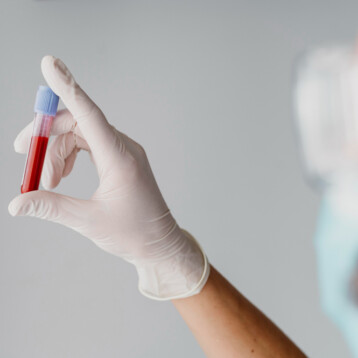|
There is a great abundance of microbes in our bodies; in the colon alone there are more bacteria than cells. Most of these bacteria are absolutely harmless and some even have known beneficial effects, such as Escherichia coli, which helps with the digestion processes. However, scientists have speculated for a number of years that bacteria living in the gut may also play a role in the formation of sporadic colorectal cancer.
Intestinal cancers occur almost exclusively in the areas where a variety of bacteria are in contact with the gut surface. Scientists have been trying to decrypt the processes leading to this disease for years, aiming at identifying links between gut bacteria and people who are at risk of colon cancer. This task has been very difficult due to the enormous complexity of the microbial population in the intestine.
Enterococcus faecalis is a normal gut bacterium which, unlike most gut bacteria, can survive using two different types of metabolism: respiration and fermentation. When bacteria use fermentation as their main metabolic strategy, they release by-products. One of these is a kind of oxygen molecule called superoxide. Superoxide is a free radical, highly reactive and can easily damage DNA and through this damage process may play a role in the formation of colon tumors.
|
Professor Mark Huycke from the Department of Veterans Affairs Medical Center in Olklahoma City, USA says that superoxide from E. faecalis leads to strong signaling in immune cells called macrophages. This free radical also influenced the way some cells in the gut grew and divided and even increased the production of genes that are associated with cancer.
The research team found that 42 genes in the gut epithelium cells that are involved in the regulation of the cell cycle, cell death and signaling, were influenced by the unique metabolism of E. faecalis. These findings suggest that the balance in the gut is quickly disrupted when E. faecalis switches to fermentation. They also suggest that E. faecalis may have developed novel mechanisms to encourage colon cells to turn cancerous.
Professor Huycke says that these findings are among the first to reveal the mechanisms by which normal gut bacteria damage DNA and alter gene regulation in the colon that could lead to cancer. “This research puts into perspective the complexity of the effects normal gut bacteria can have on the health of an individual,” he said.
TFOT has recently covered several stories related to the cancer and the digestive system. One such story covers the PillCam – a colon video camera developed by the Israeli company Given Imaging Ltd. which was built to make the colonoscopy procedure easier and less intrusive. Another story covered by TFOT examined the link between inflammation and cancer which improved the understanding of cancer caused by ulcerative colitis, discovered by a research team from MIT.
For more information on E. faecalis and cancer please visit the VA watchdog blog. Some more insight on the subject can be found on the BBC News site.












